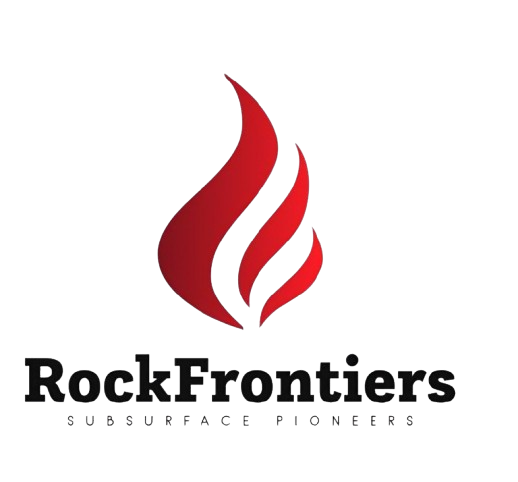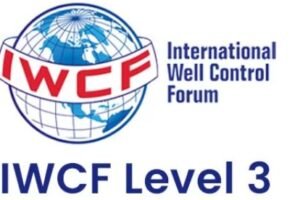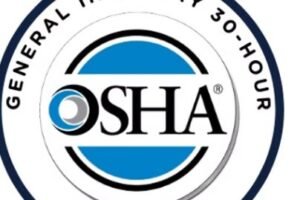🛡️ Anti-Money Laundering (AML) Compliance Training Course – Basics
📘 Course Description: This foundational course provides a comprehensive introduction to Anti-Money Laundering (AML) and its importance in today’s regulatory environment. Participants will understand the basics of money laundering, the global regulatory framework, red flag indicators, compliance requirements, and how …
Overview
📘 Course Description:
This foundational course provides a comprehensive introduction to Anti-Money Laundering (AML) and its importance in today’s regulatory environment. Participants will understand the basics of money laundering, the global regulatory framework, red flag indicators, compliance requirements, and how to build and maintain effective AML programs. The training includes real-world case studies and interactive sessions that equip attendees with the practical tools needed to detect and prevent money laundering activities.
🎯 Learning Objectives:
By the end of this course, participants will be able to:
-
Understand the concept and stages of money laundering
-
Identify AML laws, regulations, and enforcement bodies globally (e.g., FATF, EU, FinCEN)
-
Recognize suspicious transactions and red flags
-
Apply customer due diligence (CDD) and KYC principles
-
Understand the responsibilities of compliance officers and reporting entities
-
Learn the basics of risk-based approaches and internal controls in AML
👥 Who Should Attend:
-
Compliance Officers
-
Risk Managers
-
Accountants & Auditors
-
Customer Service and Onboarding Teams
-
Legal Professionals
-
Government Investigators and Regulators
-
Oil & Gas Treasury and Procurement Teams
-
Banking & Insurance Employees
🧠 Training Methodology:
-
Interactive presentations
-
Group workshops and quizzes
-
Case study analysis
-
Role-play on customer onboarding and suspicious activity reporting (SARs)
-
Q&A with compliance experts
🗓️ Daily Agenda with Time Breaks
📗 Day 1: Introduction to AML & Regulatory Frameworks
| Time | Topic |
|---|---|
| 08:30–09:00 | Registration and Introductions |
| 09:00–10:30 | Overview of Money Laundering – Definitions, Techniques, Examples |
| 10:30–10:45 | ☕ Coffee Break |
| 10:45–12:15 | Stages of Money Laundering: Placement, Layering, Integration |
| 12:15–13:15 | 🍽 Lunch |
| 13:15–14:45 | International AML Framework: FATF, Egmont Group, Basel Committee |
| 14:45–15:00 | ☕ Coffee Break |
| 15:00–16:30 | National AML Laws & Regulatory Bodies (Tailored per country) |
📘 Day 2: AML Risk-Based Approach and KYC/CDD
| Time | Topic |
|---|---|
| 08:30–10:00 | Risk-Based Approach in AML Programs |
| 10:00–10:15 | ☕ Coffee Break |
| 10:15–12:15 | Customer Due Diligence (CDD), Enhanced Due Diligence (EDD), KYC |
| 12:15–13:15 | 🍽 Lunch |
| 13:15–14:45 | Beneficial Ownership & Source of Funds Verification |
| 14:45–15:00 | ☕ Coffee Break |
| 15:00–16:30 | Risk Rating Customers: Low, Medium, High |
📙 Day 3: Transaction Monitoring & Red Flags
| Time | Topic |
|---|---|
| 08:30–10:00 | Identifying Suspicious Transactions |
| 10:00–10:15 | ☕ Coffee Break |
| 10:15–12:15 | Red Flags for Money Laundering across Industries |
| 12:15–13:15 | 🍽 Lunch |
| 13:15–14:45 | Real Case Study Exercises: Typologies and Pattern Analysis |
| 14:45–15:00 | ☕ Coffee Break |
| 15:00–16:30 | Introduction to Transaction Monitoring Systems & Software |
📕 Day 4: Reporting, Record-Keeping, and Internal Controls
| Time | Topic |
|---|---|
| 08:30–10:00 | Suspicious Activity Reports (SARs): When & How to File |
| 10:00–10:15 | ☕ Coffee Break |
| 10:15–12:15 | Record Retention Requirements & Data Privacy Considerations |
| 12:15–13:15 | 🍽 Lunch |
| 13:15–14:45 | AML Internal Controls and Audit Trail |
| 14:45–15:00 | ☕ Coffee Break |
| 15:00–16:30 | Role of the Compliance Officer and AML Policies |
📒 Day 5: Compliance Culture, Case Studies, and Final Assessment
| Time | Topic |
|---|---|
| 08:30–10:00 | Promoting a Culture of Compliance in the Organization |
| 10:00–10:15 | ☕ Coffee Break |
| 10:15–12:15 | Review of Major Global AML Failures and Enforcement Actions |
| 12:15–13:15 | 🍽 Lunch |
| 13:15–14:45 | Final Exercise: Designing a Basic AML Program for a Case Company |
| 14:45–15:00 | ☕ Coffee Break |
| 15:00–16:30 | Final Quiz, Discussion, Certificates |
📂 Training Materials Provided:
-
AML Compliance Manual (PDF)
-
Templates for SARs, CDD, Risk Assessments
-
FATF Guidelines Summary
-
Course Certificate
Target audiences
- Reservoir Engineers, Geologists
You May Like
📘 Underbalanced Drilling (UBD) Techniques and Safety
🎯 Course Description: This intensive 5-day program focuses on Underbalanced Drilling (UBD) – an advanced technique used to drill wells where the hydrostatic pressure of the fluid is intentionally kept below formation pressure. Participants will learn how to implement UBD …
📘 IOSH Managing Safely
🎯 Course Description: A practical, 5-day program designed to help managers and supervisors learn how to manage safety and environmental responsibilities in their teams. Emphasis is placed on identifying risks, measuring performance, and leading safely using internationally recognized good practices. …
📘 IWCF Level 3 Well Control (Surface BOP)
🎯 Course Description: This is an intensive course aimed at drilling / well service personnel needing to gain supervisory competence in well control using surface blow‑out preventers (BOP) under the IWCF standard. It covers theory, hands‑on practice, and assessments for …
Advanced Specialist Petroleum GeoMechanics
📘 Course Description: This elite-level course is tailored for petroleum geomechanics specialists and senior subsurface professionals engaged in complex field development projects. It provides a deep technical dive into stress modeling, anisotropic rock behavior, coupled geomechanical-reservoir simulation, fault/fracture mechanics, and …
📘 OSHA 30‑Hour General Industry Safety and Health
🎯 Course Description: This 5‑day course provides in‐depth knowledge of workplace safety and health in general industry sectors. It covers OSHA regulations, hazard recognition, safety programs, and industry best practices. Participants will gain the expertise needed to maintain a safe …






